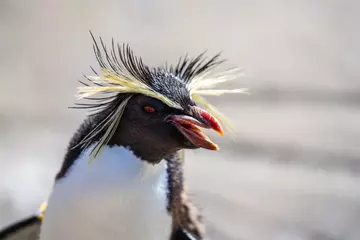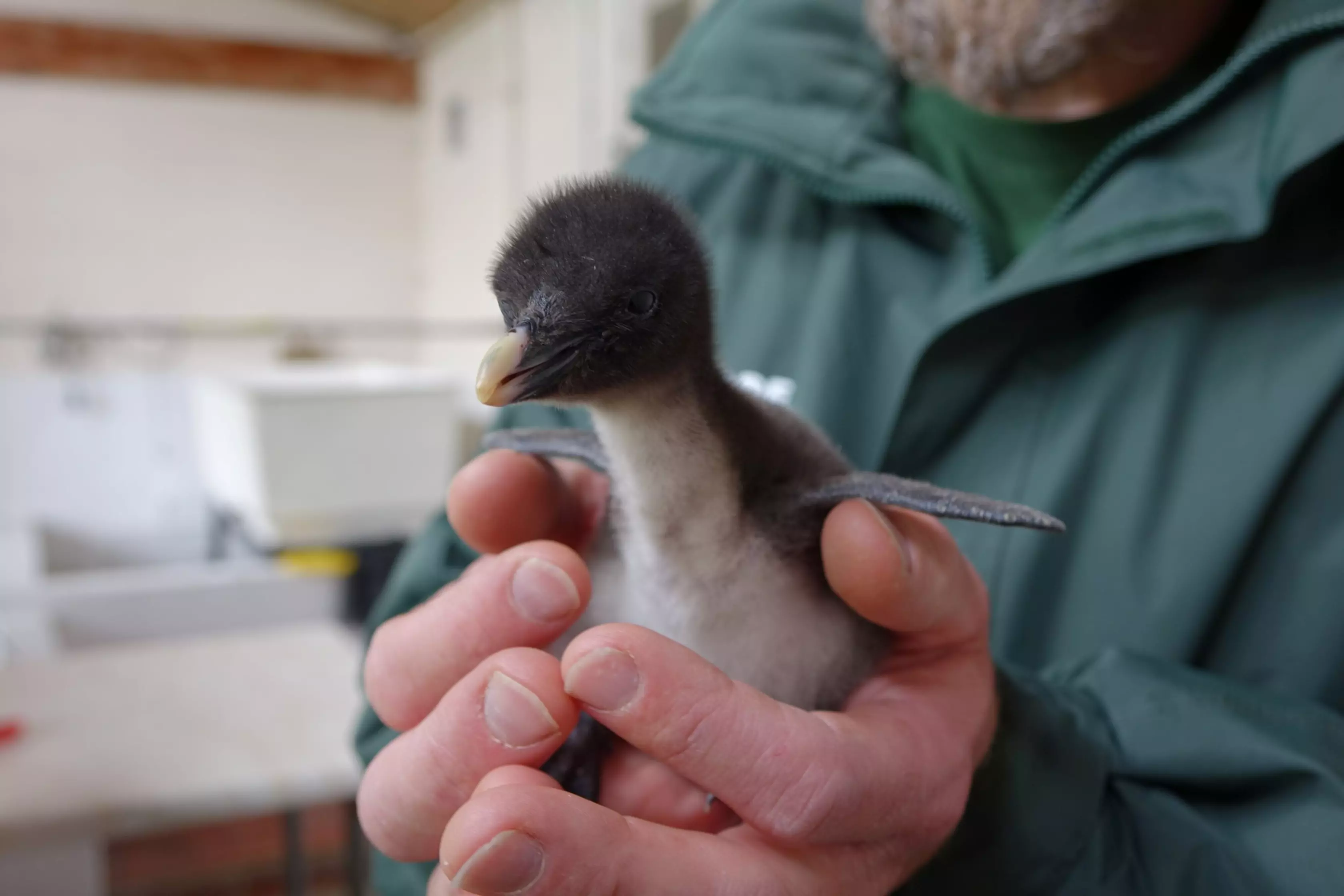
A newly hatched endangered northern rockhopper chick is currently being hand-reared by our zookeepers
The precious two-week old chick, whom keepers have affectionately nicknamed ‘noisy’ due to its constant chirping whenever they are near, is receiving round the clock care, including being hand fed three times a day, and being kept warm in its own cosy nesting box.
Dedicated keepers feed the chick with a special 'milkshake' designed to replicate the regurgitated food produced by penguin parents. The concoction consists of blended sprats, vitamins and saline solution, to provide the chick with a protein- and nutrient-rich diet as it grows.
Northern rockhopper penguins are part of an international breeding programme coordinated by zoos to boost the numbers of their species, but the colony at Whipsnade Zoo needed a helping hand from zookeepers. Having observed a low survival rate with previous eggs, zookeepers at the conservation zoo knew they needed to step in to give the newest chick the best chance of survival.
After the egg was laid, keepers swapped it out for a dummy egg, giving the penguin parents the chance to practice nesting – an important lesson for the colony - whilst the original was incubated and hatched at Whipsnade’s specialist bird nursery.
Whipsnade Zoo’s section manager of birds, Tim Savage, said: “We’re overjoyed to have a northern rockhopper chick at Whipsnade Zoo. As wild populations have sadly declined by more than 57% in the last 27 years, contributing to the European breeding programme to create a healthy and genetically diverse back up population in conservation zoos is vital.”
“We are one of only seven zoos in Europe to care for this rare subspecies, so we’re monitoring our tiny hatchling around the clock to give it the best chance possible.”

Known for the distinctive spiky yellow and black crested feathers that frame their face, northern rockhopper penguins are native to the South Atlantic and Indian Ocean, but travel as far north as South Africa and South America.
The fluffy fledgling will develop its distinctive long yellow eyebrows after its first moult, and like all penguins, has no visual differences between males and females, so it will be sexed when it is two months old via a DNA analysis.
Wild populations of northern rockhopper penguins are threatened by climate change, oil pollution, and overfishing. ZSL, the international charity behind Whipsnade Zoo, is leading studies to monitor the impact of climate change on ocean habitats and the animals that inhabit them, such as seabirds, and uses its conservation zoos to educate people about the impacts of climate change.
A day out for the whole family and only a short drive or train journey from London, visitors to the UK’s largest zoo this May half term can visit the colony of northern rockhoppers, as well as 11,000 other animals, and help support the conservation efforts of international charity ZSL across the globe.
